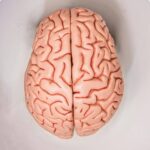 In today’s fast-paced world, driven by deadlines and endless to-do lists, taking time to move might seem counterproductive. But the research is clear: exercise is one of the simplest yet most effective ways to support brain health and memory regardless of age. Beyond the obvious benefits to physical fitness, research has shown that even brief bouts of movement can significantly enhance mood, focus, and cognitive performance. Let’s dive into the science of how exercise helps our brains thrive and explore simple ways to incorporate this knowledge into your daily life.
In today’s fast-paced world, driven by deadlines and endless to-do lists, taking time to move might seem counterproductive. But the research is clear: exercise is one of the simplest yet most effective ways to support brain health and memory regardless of age. Beyond the obvious benefits to physical fitness, research has shown that even brief bouts of movement can significantly enhance mood, focus, and cognitive performance. Let’s dive into the science of how exercise helps our brains thrive and explore simple ways to incorporate this knowledge into your daily life.
The Brain-Body Connection
 Your brain doesn’t exist in isolation. It’s part of an intricate system where physical and mental health are deeply intertwined. Exercise stimulates blood flow, delivering oxygen and nutrients to the brain while helping to clear out toxins. This increased circulation supports critical areas like the hippocampus, the part of the brain responsible for learning and memory.
Your brain doesn’t exist in isolation. It’s part of an intricate system where physical and mental health are deeply intertwined. Exercise stimulates blood flow, delivering oxygen and nutrients to the brain while helping to clear out toxins. This increased circulation supports critical areas like the hippocampus, the part of the brain responsible for learning and memory.
Dr. Charles Hillman, a leading researcher in cognitive health, explains that regular physical activity not only strengthens memory but also helps improve executive functions like planning, problem-solving, and attention. His studies show that people who exercise regularly perform better on tasks requiring focus and decision-making, underscoring the profound impact of movement on mental acuity.
Science-Backed Benefits of Exercise for the Brain
Recent findings from the ASICS Global State of Mind survey, involving 26,000 participants, highlight the transformative power of movement. This study revealed that you don’t need to spend hours sweating in the gym to see results. Just 15 minutes of movement every two hours can bring remarkable improvements:
-
22.5% increase in mental wellbeing
-
33.2% boost in productivity
-
28.6% improvement in focus
Dr. Brendon Stubbs, from King’s College London and the study’s lead author, emphasizes that these short breaks are more than just “time away.” They work by increasing blood flow to brain regions responsible for emotional regulation and decision-making.
“Movement enhances our ability to handle stress and pressure,” says Dr. Stubbs. “It’s not just about moving your body; it’s about optimizing your mind.”
 Why Exercise Is a Memory Booster
Why Exercise Is a Memory Booster
Memory plays a critical role in our everyday lives, from remembering where we parked the car to recalling names and important dates. Exercise has been shown to help with memory retention and retrieval by enhancing the growth of new brain cells in the hippocampus—a process called neurogenesis.
Physical activity also helps reduce stress, which is known to impair memory and cognitive function. When we move, our bodies release endorphins, those “feel-good” chemicals that reduce anxiety and improve mood. This creates a healthier mental environment for memory to flourish.
Making Movement Work for You
The good news is you don’t need to overhaul your life to experience these benefits. Small, consistent changes can have a profound impact on your brain health. Here are some easy ways to get started:
Take Movement Breaks: Inspired by the ASICS findings, aim for 15 minutes of light activity every two hours. This could be a quick walk, stretching, or even dancing to your favourite song.
Combine Exercise with Learning: Activities like walking while listening to a podcast or audiobook stimulate your brain and body simultaneously, reinforcing memory and comprehension.
Opt for Nature: Research shows that exercising in green spaces can amplify cognitive benefits, thanks to the stress-reducing and restorative effects of nature.
Incorporate Aerobic Exercise: Activities like fast walks, jogging, cycling, hill climbing or swimming are particularly effective for boosting brain health, as they increase heart rate and enhance blood flow to the brain.
Stay Consistent: The key to long-term benefits is regularity. Find an activity you enjoy and make it part of your routine.
 Movement for All Ages
Movement for All Ages
Exercise isn’t just for the young or fitness enthusiasts. It’s especially crucial as we age. Maintaining an active lifestyle can slow cognitive decline and help preserve memory and independence. Whether it’s gardening, tai chi, or a daily walk, staying active is one of the best ways to keep your brain sharp at any age.
So, the next time you feel overwhelmed or notice your focus slipping, step away from your desk or the task you are doing. Take a brisk walk, stretch, or do a quick workout. These small actions add up, leading to big improvements in memory, mental health, and overall cognitive function.
By prioritizing movement, you’re not only investing in your physical wellbeing but also setting the foundation for a sharper, healthier mind.





